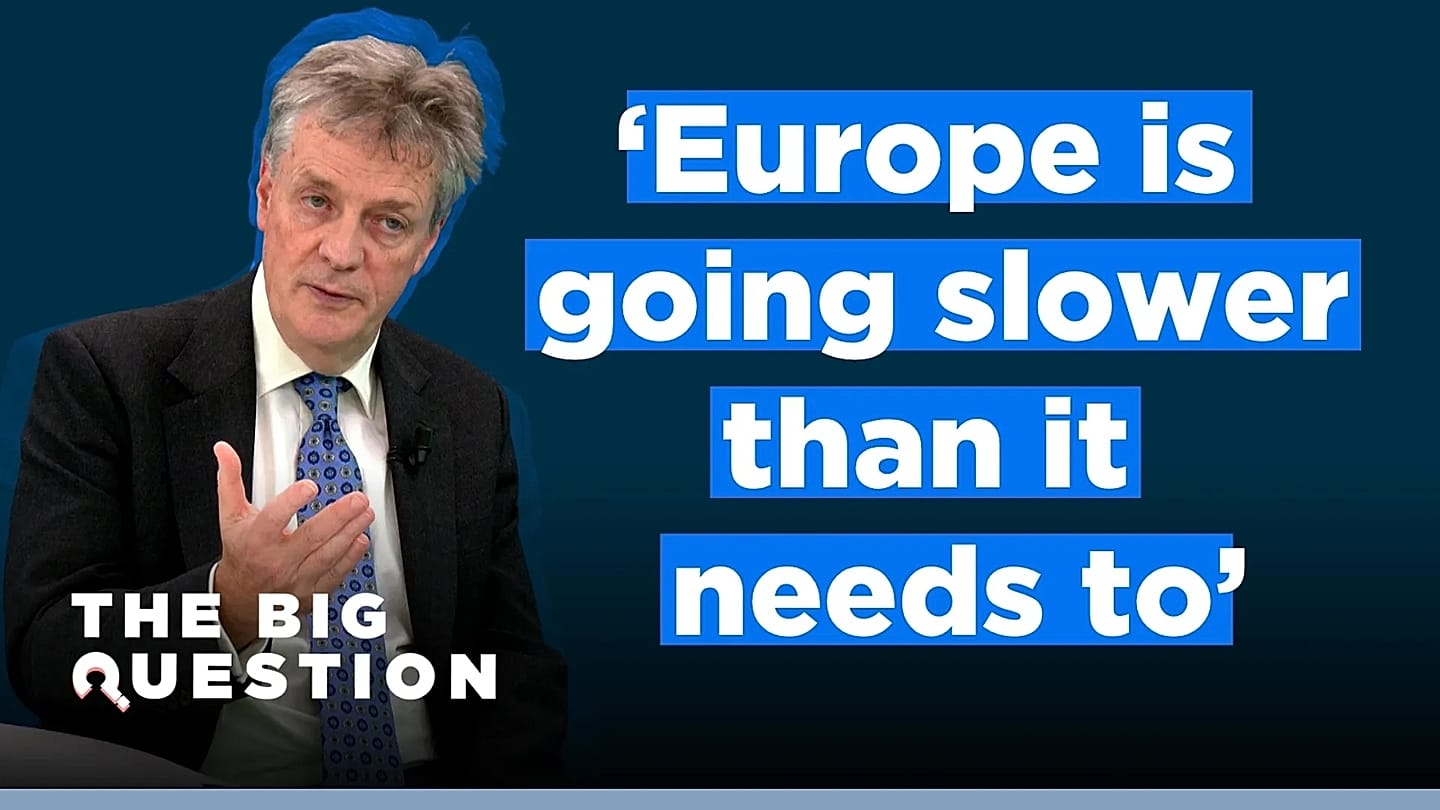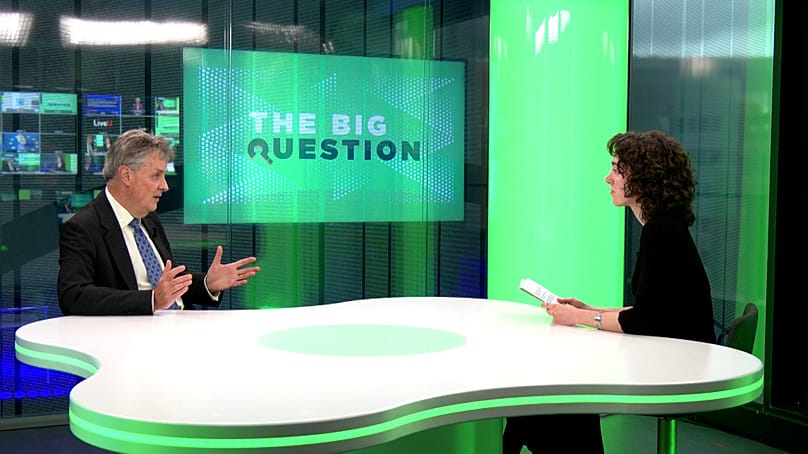
German chancellor Friedrich Merz recently advocated for the creation of a single European stock exchange, stressing that fragmentation along national lines is still hindering investment in the EU.
While such a proposal isn’t new, financial consolidation is becoming all the more urgent, at least according to former commissioner Lord Jonathan Hill.
As old alliances shift, “the urgency of the need to change has clearly become greater,” said Hill. The British politician, a former EU commissioner for the Capital Markets Union, spoke to The Big Question about Europe’s competitiveness on the global stage.
“The geopolitical changes are like a big alarm bell going off…regulators and supervisors in Europe are still behaving as though we’re operating in the old world. I think that world has gone and I don’t think it’s coming back,” he said.
“Politicians in Europe need to take more responsibility for making an argument in favour of growth.”
How can we unlock capital in Europe?
Unlocking investment has become critical for the EU at a time when the bloc is faced with a raft of challenges such as Russian aggression and US trade tariffs.
In value, the US stock market is four times larger than the total value of firms listed on European exchanges. US shares are also far more liquid.
These disparities, combined with a lower regulatory burden in the US, mean that many European firms migrate across the pond when they want to list shares publicly, eager for higher valuations. Other capital flows, such as debt markets and venture investment, also remain fragmented across the EU.
In practice, this means less money flowing into the bloc’s economies, fewer jobs created, reduced investment opportunities, and a loss of sovereignty at a time when geopolitical tensions are high.
“I was quite encouraged by the Draghi report, and by the Letta report before,” said Hill, referring to EU proposals on competitiveness. “But it’s a year on and I think Europe is going slower than it needs to go.”

The EU’s stance on deregulation
Calls from Brussels to improve EU competitiveness also focus on the Banking Union and its potential to boost lending capacity. Created as a response to the eurozone debt crisis, the initiative seeks to prepare banks for periods of financial strain and reduce regulatory fragmentation.
Since President Donald Trump’s appointment to the White House, US banks have been forecasting a wave of financial deregulation as the administration pledges to cut capital requirements. Research suggests that such policy shifts could free up trillions of dollars as banks are required to hold smaller cushions for financial shocks.
But while the US is throwing caution to the wind, the EU is moving more slowly. For some, this hesitation is about learning from the mistakes of the past. For others, such an approach is overcautious in today’s climate.
“What happened back in 2010 and thereafter was a natural human reaction to a massive crisis…and a huge amount of very important work was done to make the system safer,” said Hill.
“Today where Europe’s biggest problem is lack of growth, are the judgements we’d make today the same as the judgments we made ten or twelve years ago where our biggest worry was about financial stability? I would argue that we would make some different judgments now because the problems are different. But too often, I think, in the regulatory world, they don’t want to have the discussion.”
Ceding power to EU-wide regulators
One barrier to greater EU cohesion is an unwillingness from member states to cede control over decision-making to a supranational body.
Such a mentality has, for example, hindered progress on a single European stock exchange.
Even so, “member states would feel much more comfortable about ceding power to supranational European regulators if they thought they were pro-growth,” said Hill.
“If people feel confident that at the centre there’ll be people who understand the importance of competitiveness, I think the argument about centralisation becomes easier to make.”
The Big Questionis a series from Euronews Business where we sit down with industry leaders and experts to discuss some of the most important topics on today’s agenda.
Watch the video above to see the full discussion with Lord Jonathan Hill.